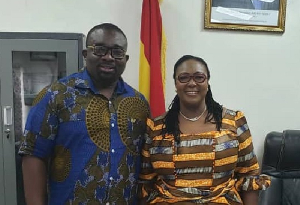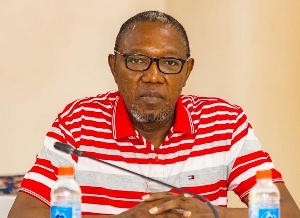Opinions of Friday, 18 August 2023
Columnist: Selorm Kofi Dake
Achieving regional integration in West Africa through the ECOWAS of the people
In the pursuit of a harmonious and prosperous West Africa, regional integration stands as a paramount goal. The Economic Community of West African States (ECOWAS) has long been the driving force behind efforts to foster unity, economic growth, and sustainable development across the region. The concept of "ECOWAS of the People" encapsulates the aspiration to achieve greater regional integration by placing the needs and aspirations of the people at the center of the integration process.
Historical context:
Since its establishment in 1975, ECOWAS has played a pivotal role in promoting economic cooperation and political stability in West Africa. Over the years, it has made strides in the areas of trade liberalization, free movement of goods and people, and conflict resolution. However, challenges persist, including insufficient infrastructural development, trade imbalances, and limited citizen engagement.
The ECOWAS of the people:
"ECOWAS of the People" represents a visionary shift towards inclusivity and participation. It acknowledges that effective integration cannot be achieved solely through policy agreements among governments but requires active involvement and ownership by the citizens themselves. This approach recognizes that the people are not just beneficiaries of integration, but key stakeholders in its success.
The crucial role of the masses in achieving ECOWAS of the people:
In the pursuit of regional integration through the ECOWAS of the People, the role of the masses takes center stage. Citizens across West Africa play an indispensable role in shaping, driving, and realizing the vision of a united, prosperous, and harmonious region. Here are key aspects highlighting the pivotal role of the masses in achieving ECOWAS of the People:
Active participation in decision-making: The masses are not mere spectators but active participants in the integration process. Their voices, opinions, and concerns are invaluable in shaping regional policies.
Ownership and accountability: When citizens are engaged in the decision-making process, they develop a sense of ownership and accountability toward regional integration.
Promoting inclusivity: The masses are diverse in their cultures, languages, and socio-economic backgrounds. By actively engaging citizens from various walks of life, ECOWAS of the People promotes inclusivity and ensures that policies cater to the needs of all.
Driving grassroots development: The masses reside in communities that are the building blocks of the region. Empowering local communities through ECOWAS of the People initiatives can lead to grassroots development that contributes to the overall growth of the region.
Watchdogs for transparency: Citizens act as watchdogs, ensuring transparency, accountability, and the proper utilization of resources.
Fostering unity and cultural exchange: The masses represent the rich cultural tapestry of West Africa. Their interactions, exchanges, and collaborations promote cross-border understanding, tolerance, and unity.
Peace advocacy: Citizens have a vested interest in maintaining peace and security within the region. Their collective efforts can support conflict prevention, resolution, and the promotion of stability.
Entrepreneurship and innovation: The masses, often consisting of entrepreneurs and innovators, can drive economic growth through their creativity and resourcefulness.
Key pillars of ECOWAS of the people:
Citizen participation: True integration demands the active involvement of citizens. ECOWAS of the People seeks to create platforms for regular dialogues and consultations, allowing citizens to voice their concerns, propose solutions, and contribute to shaping regional policies.
Inclusive development: Socio-economic development should be evenly distributed across member states. ECOWAS of the People emphasizes the need for equitable resource allocation, job creation, and poverty reduction to ensure that no nation or community is left behind.
Education and awareness: Enhancing awareness about the benefits and objectives of regional integration is crucial. ECOWAS of the People emphasizes educational programs that foster a sense of belonging and encourage citizens to actively participate in regional initiatives.
Infrastructure and connectivity: Efficient transport networks, energy infrastructure, and digital connectivity are imperative for the smooth flow of goods, services, and information across borders.
Conflict prevention and resolution: To achieve lasting peace and stability, ECOWAS of the People focuses on strengthening conflict prevention mechanisms and promoting dialogue among member states.
Benefits of ECOWAS for the people:
Empowerment: By involving citizens in the decision-making process, ECOWAS of the People empowers individuals to contribute to their region's growth and stability.
Innovation: Diverse perspectives and ideas from citizens can drive innovation, leading to novel solutions for regional challenges.
Sustainable Development: Prioritizing equitable development and environmental sustainability ensures long-term benefits for all member states.
Unity: ECOWAS of the People fosters a sense of unity, transcending borders and ethnic differences, thereby promoting social cohesion.
Conclusion:
As West Africa continues to strive for unity, prosperity, and stability, the abiding force of "ECOWAS of the People" serves as a beacon of hope. This vision acknowledges the integral role of citizens in the integration process and seeks to transform ECOWAS into a platform that caters to their aspirations and concerns. By placing people at the heart of integration efforts, ECOWAS of the People paves the way for a brighter future, where the collective strength of West Africa's people propels the region towards unparalleled success.













